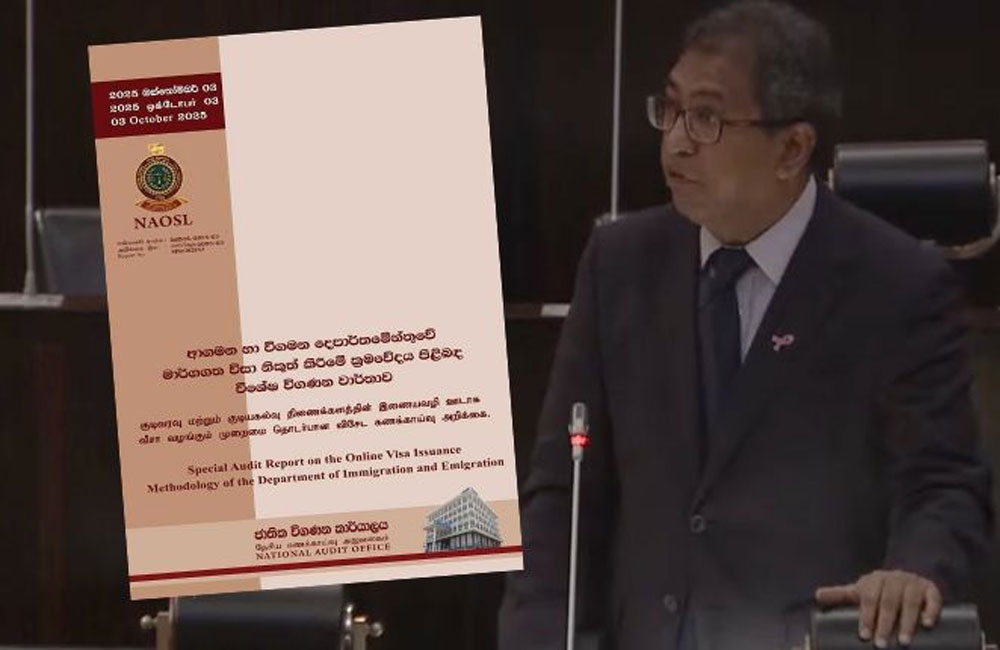Sri Lanka’s contentious e-visa system has come under renewed scrutiny as the Department of Immigration and Emigration’s special audit report was officially presented to Members of Parliament this week. The report, compiled by Acting Auditor General G.H.D. Dharmapala, reveals serious lapses in financial accountability, legal compliance, and procurement transparency surrounding the multimillion-dollar e-visa contract awarded to a foreign private company.
Speaking in Parliament, Committee on Public Finance (CoPF) Chairman Dr. Harsha de Silva confirmed that MPs had received the special audit report, which includes nine key recommendations to rectify the issues and restore public trust in the visa issuance process. He urged that the recommendations be implemented without delay, noting that the controversy has severely tarnished the image of the country’s border control system.
The Auditor General’s report calls for a comprehensive review of the outsourcing arrangements, urging authorities to determine their legality under the Immigration and Emigration Act of 1948. It also recommends investigations into officials who approved and implemented the project without the involvement of the Finance Ministry or Treasury oversight, particularly in relation to visa revenue being collected in foreign bank accounts.
The report highlights the absence of competitive bidding, weak contractual safeguards, and a lack of cost-effectiveness studies before awarding the contract. It calls for immediate recovery of any losses incurred by the government and insists that future service providers must be selected through a transparent, competitive tender process once ongoing court proceedings are concluded.
The e-visa system, introduced in late 2023, was intended to streamline Sri Lanka’s entry procedures for tourists and business travelers through online processing. However, the project quickly became mired in controversy after revelations that visa fees were being charged in U.S. dollars and collected through a private entity’s overseas account without full government supervision. Public backlash led the authorities to suspend the system temporarily earlier this year, reverting to the previous visa-on-arrival and ETA platforms while investigations continued.
The Auditor General’s findings have revived the debate over digital governance and public-private partnerships in critical state functions. The report stresses that all future contracts must comply with Sri Lankan tax regulations, ensure data protection, and guarantee that all revenue is properly remitted to the state.
While the audit was limited to available evidence, it recommends referring potential unlawful acts to specialized investigative agencies. The controversy, which has already led to several administrative transfers within the Immigration Department, is expected to shape the government’s broader approach to e-governance reforms in the coming months.

Leave your comments
Login to post a comment
Post comment as a guest